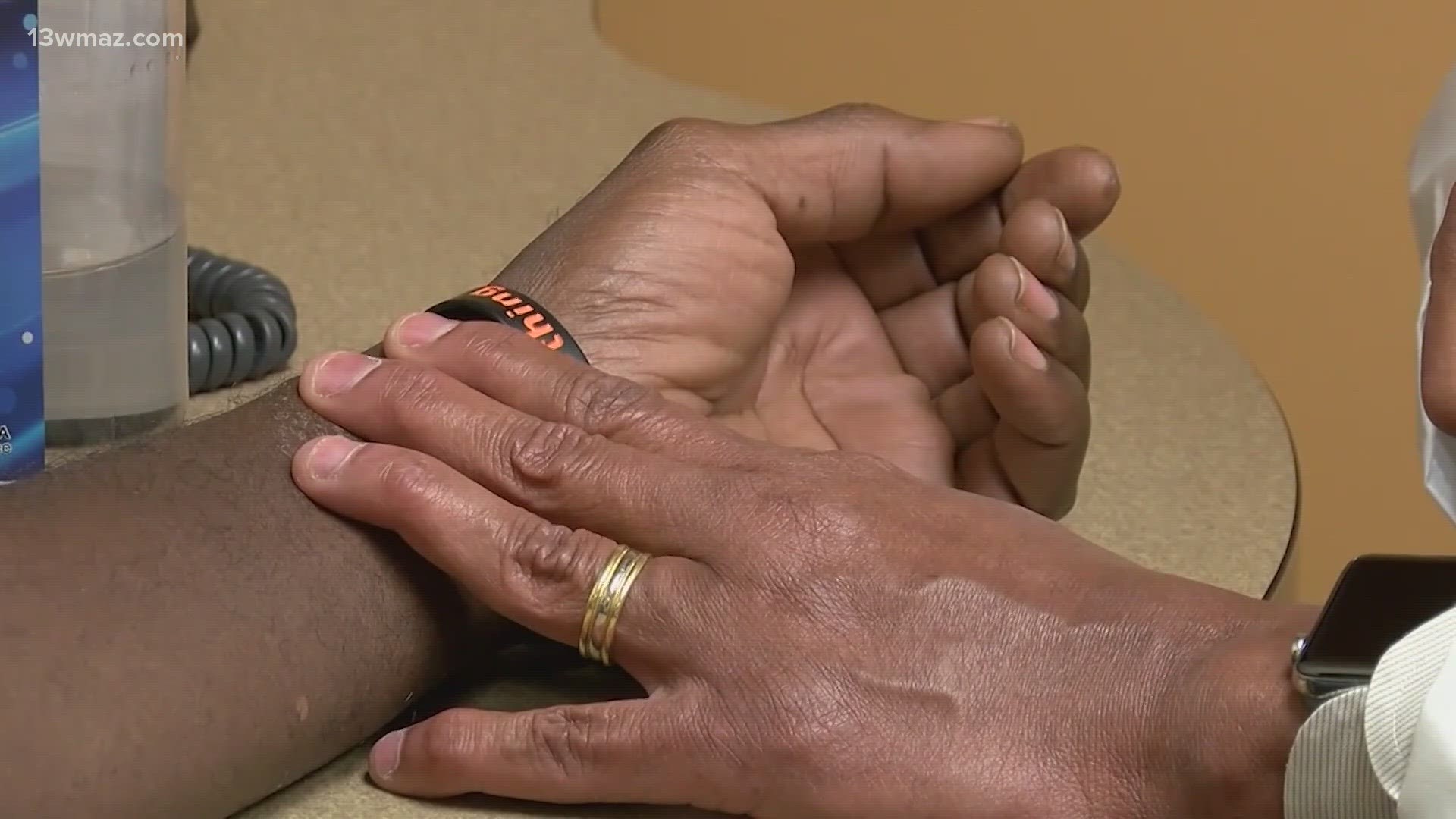MACON, Ga. — On most summer days in Central Georgia, the heat and humidity will be high.
That doesn't stop some people from exercising outside.
F.M. Barron is the president of the Macon Tracks Running Club, and he's outside in the summer three to four days a week. For him, avoiding heat illnesses is all about timing.
"I usually try to go very early in the morning or late in the evening. Early in the morning is cooler, but the humidity is higher, so there's a tradeoff," Barron said.
That's why Walk with a Doc at Amerson River Park starts their exercise at 8 a.m.
Dr. Harry Strothers is the "doc," and he agrees with Barron.
"Plan your exercise in parts of the day where it's not going to be as hot or as humid, so earlier in the morning late in the evening," said Strothers.
Staying hydrated is also important in preventing heat illnesses.
Watch for these signs of heat exhaustion and heat stroke in yourself and others:
- During exhaustion, you may feel faint or dizzy.
- You may sweat excessively and your skin becomes cool, pale, and clammy.
- Your pulse will be rapid and weak while your muscles start to cramp.
- Once you've graduated to heat stroke, a throbbing headache will set in.
- The body is so dehydrated that you will not sweat.
- Your skin will be red, hot, and dry as your pulse becomes abnormally strong.
- Then, you may lose consciousness.
- Both heat exhaustion and heat stroke can induce nausea and vomiting.
If either of those happens, Strothers says, "The best thing to do is stop. Stop the person from exercising, even they don't realize they're starting to have those problems. Get them into some shade. Get liquids into them. Actually wet them down because that'll help cool them down."
After you've tried those remedies and there is no improvement, "If they're not getting better in 20 minutes, they need to go see an emergency room," said Strothers.
This summer, make sure to eat and drink well, starting the night before.
"Drink before you're thirsty because by the time you're thirsty, it's too late," Barron said.

